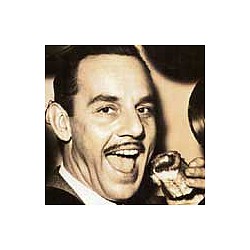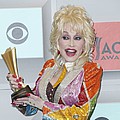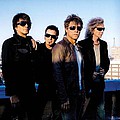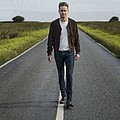Johnny Otis, the man known as the Godfather of Rhythm and Blues, passed away at his home in Altadena, CA on Tuesday at the age of 90. Otis had been in poor health for some time.
Otis was born John Veliotes and grew up in a predominantly African-American neighborhood in Berkeley, CA. At the age of 18, he started playing with Count Otis Matthew's West Oakland House Rockers and, four years later, was advised to move to Los Angeles by Nat King Cole and Jimmy Witherspoon.
In L.A., he started with Harlan Leonard's Kansas City Rockers and eventually formed his own band. In 1945, had his first hit with Harlem Nocturne on Excelsior and, up until the late 40's, played mainly as a jazz band but, with the opening of the Barrelhouse Club in Watts which he owned with Bardu Ali, he switched to smaller groups and played primarily Rhythm and Blues.
In 1949, Otis signed with Savoy and began a long string of R&B hits including ten top 10 hits in 1950 alone under such names as the Johnny Otis Quintette, the Johnny Otis Orchestra and the Johnny Otis Congregation. Included were two number ones, Double Crossing Blues (Johnny Otis Quintette with the Robins and Little Esther) and Mistrustin' Blues (Little Esther with Mel Walker and the Johnny Otis Orchestra).
In 1958, Otis finally crossed over to the pop charts with his biggest hit, Willie and the Hand Jive (as the Johnny Otis Show) which hit number 9 and number 1 on the R&B Singles.
Post-1960, Otis stayed active in music but began to branch out into other fields. He ran for the California State Assembly, was Deputy Chief of Staff for congressman Mervyn M. Dymally and was pastor of the Landmark Community Church. Over the years, he also wrote a number of books (Listen to the Lambs (1965), Upside Your Head! Rhythm and Blues on Central Avenue (1993), Colors and Chords: The Art of Johnny Otis (1995), Johnny Otis: Red Beans and Rice and Other Rock 'n' Roll Recipes (1997)) and hosted the Johnny Otis Show on KPFA Radio in Los Angeles.
During the 90's, Otis began recording again with six albums to his name during the next two decades. He also bought a farm and ran a health food store from his property. His son, Shuggie Otis, became an admired musician in his own right.
Among his songwriting hits are his own songs along with Every Beat Of My Heart (Gladys Knight & the Pips), Roll With Me Henry (The Wallflower) (Etta James), So Fine (Fiestas), Raindrops (Dee Clark) and many more.
Johnny Otis is a member of the Rock and Roll Hall of Fame, Rhythm and Blues Hall of Fame and the Blues Hall of Fame.
The top ten hits of Johnny Otis:
That's Your Last Boogie (Joe Swift with Johnnie Otis & His Orchestra) (1948/#10 R&B)
Double Crossing Blues (Johnny Otis Quintette, The Robins and Little Esther) (1950/#1 R&B)
Mistrustin' Blues (Little Esther with Mel Walker and the Johnny Otis Orchestra) (1950/#1 R&B)
Misery (Little Esther with the Johnny Otis Orchestra) (1950/#9 R&B)
Cry Baby (The Johnny Otis Orchesta, Mel Walker and the Bluenotes) (1950/#6 R&B)
Cupid Boogie (The Johnny Otis Orchesta, Little Esther and Mel Walker) (1950/#1 R&B)
Deceivin' Blues (Little Esther and Mel Walker with the Johnny Otis Orchestra) (1950/#4 R&B)
Dreamin' Blues (Mel Walker with the Johnny Otis Orchestra) (1950/#8 R&B)
Wedding Boogie (Johnny Otis' Congregation: Little Esther, Mel Walker, Lee Graves) (1950/#6 R&B)
Far Away Blues (Xmas Blues) (The Johnnie Otis Orchestra with Little Esther and Mel Walker) (1950/#6 R&B)
Rockin' Blues (The Johnny Otis Orchestra with Mel Walker) (1950/#2 R&B)
Gee Baby (The Johnny Otis Orchestra) (1951/#2 R&B)
Mambo Boogie (The Johnny Otis Orchestra) (1951/#4 R&B)
All Nite Long (The Johnny Otis Orchestra) (1951/#6 R&B)
Sunset To Dawn (Mel Walker with the Johnny Otis Orchestra) (1952/#10 R&B)
Call Operator 210 (Johnny Otis and His Orchestra featuring Mel Walker) (1952/#4 R&B)
Ma He's Making Eyes At Me (Johnny Otis and His Orchestra with Marie Adams and The Three Tons of Joy) (1957/#2 U.K.)
Willie and the Hand Jive (The Johnny Otis Show) (1958/#1 R&B/#9 Pop)
Johnny Otis news










